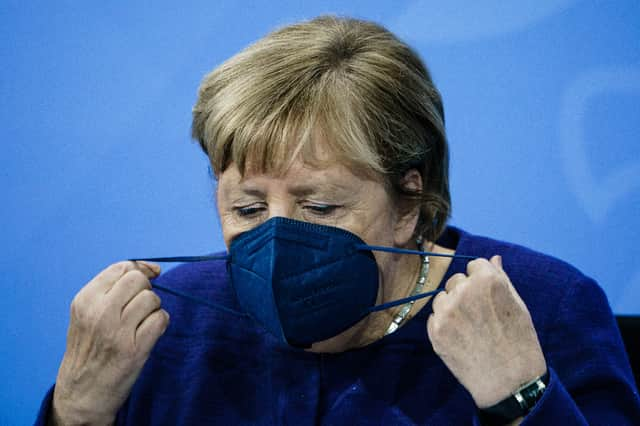Germany Covid restrictions: new rules proposed for unvaccinated people, cases and what it means for UK travel
This article contains affiliate links. We may earn a small commission on items purchased through this article, but that does not affect our editorial judgement.


Covid cases are on the rise in Germany.
As Europe and the northern hemisphere approaches the colder months of the year, concern has swelled about rising coronavirus infection rates.
Scientific advisers have warned of an increase in rates due to the virus spreading more freely indoors, as people gather in the warm and shelter from the elements.
Advertisement
Hide AdAdvertisement
Hide AdHere’s a look at the new restriction being imposed by Germany to help stop the spread of Covid this winter and what those restrictions mean for UK travel to and from the country.
What Covid restrictions are Germany considering?
Due to rising Covid cases, Germany is looking at introducing stricter rules for people who have not been vaccinated against the deadly virus.
Chancellor Angela Merkel and other leaders attended an emergency meeting on Thursday 18 November to discuss the country’s response to increasing rates.
It was decided that unvaccinated citizens will be excluded from entering certain types of venues across the country in areas where hospital Covid admissions are soaring.
Advertisement
Hide AdAdvertisement
Hide AdThe new rules mean that if there are more than three Covid patients per 100,000 people over the past seven days then the restrictions on the unvaccinated will apply.
Those restrictions will see only vaccinated and those who have recovered from Covid allowed to attend sports events, cultural shows, restaurants and other public spaces.
Loading....
When do new Covid restrictions start in Germany?
The majority of Germany’s 16 states would currently have these restrictions apply to its citizens, under the regulations set out by the country’s leaders.
Areas with more than six Covid patients in hospital per 100,000 people over the past seven days will have tighter curbs, including a 2G plus rule.
Advertisement
Hide AdAdvertisement
Hide AdThe 2G rule requires people to be tested as well as vaccinated.
Those states with hospitalisations of nine or more Covid patients per 100,000 people over the past seven days will have to set further measures to limit the spread.
Healthcare and care home staff will have to be vaccinated, as a result of the crisis meeting.
The proposals, which include limiting access to public transport and the workplace, will be voted on by the German parliament’s upper house on Friday 19 November.
How many daily Covid cases are there in Germany?
Advertisement
Hide AdAdvertisement
Hide AdGermany recorded its highest number of confirmed daily Covid cases on Thursday 18 November, with the figures rising sharply to more than 65,000.
What does this mean for UK travel to and from Germany?
At the moment travel from the UK to Germany is still permitted if you are fully vaccinated.
If you are not fully vaccinated then only German citizens and their spouse, partner or child under 18 can enter the country from the UK.
Travellers who are not fully vaccinated and don’t meet the necessary exemptions can not enter Germany from the UK.
Advertisement
Hide AdAdvertisement
Hide AdAll travellers wishing to enter Germany from the UK must complete a pre-departure digital registration, regardless of vaccination status.
Unvaccinated people eligible to enter Germany must adhere to quarantine rules upon arrival, currently 10 days with test and release after five days.
Testing requirements mean travellers aged 12 and over from the UK who are not fully vaccinated or recovered from Covid, will need to enter Germany with either a PCR test result that is no more than 72 hours old, or a rapid antigen or other test sample that is no more than 48 hours old.
A message from the editor:
Thank you for reading. NationalWorld is a new national news brand, produced by a team of journalists, editors, video producers and designers who live and work across the UK. Find out more about who’s who in the team, and our editorial values. We want to start a community among our readers, so please follow us on Facebook, Twitter and Instagram, and keep the conversation going. You can also sign up to our email newsletters and get a curated selection of our best reads to your inbox every day.
Comment Guidelines
National World encourages reader discussion on our stories. User feedback, insights and back-and-forth exchanges add a rich layer of context to reporting. Please review our Community Guidelines before commenting.
